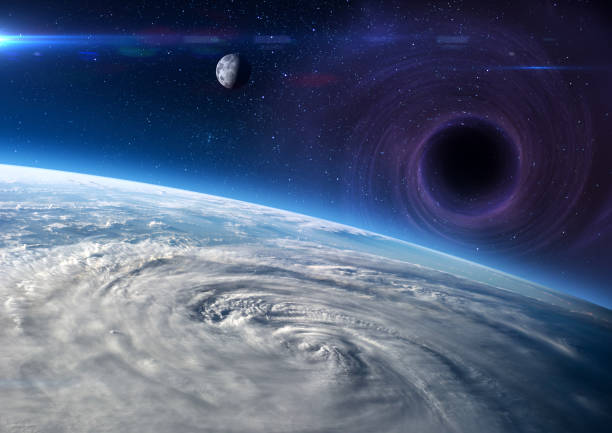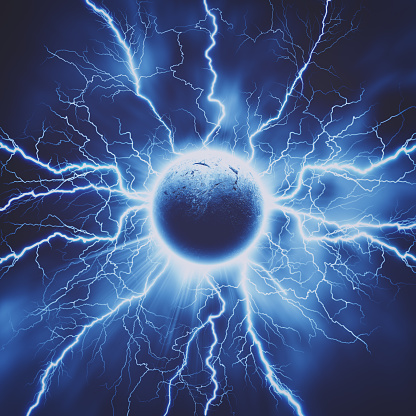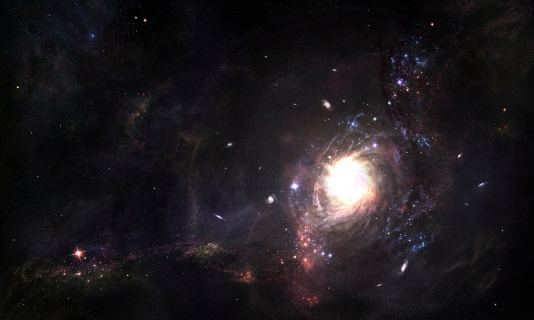What is something that is around us every time but we can’t see it? I’m sure every one of us knows the answer to that, that’s right you guessed it correctly, it’s air. Air is a basic yet very vital necessity in a human being’s life. Space is a vacuum, which means there is no air in space, so what is it filled with? In this video, we will be looking at dark matter and dark energy which are the main components of space.
What Is Dark Matter?

Scientists have never observed more than 80% of the universe’s matter. Since the behavior of stars, planets, and galaxies simply wouldn’t make sense without it, we can only believe that dark matter exists. Here is what we know—or rather, what we think we know—about it.
Dark matter is entirely undetectable. Since it doesn’t emit any light or energy, ordinary sensors and detectors are unable to pick it up. Scientists believe that its composition must hold the key to understanding its cryptic nature.
Baryons, a general term for subatomic particles including protons, neutrons, and electrons, make up visible matter, also known as baryonic matter. What dark matter is constituted of is a topic of speculation among scientists. It could be made of baryons, but it might also be non-baryonic, which is made of many kinds of particles.
The visual illusions that astronomers observe in the deep cosmos may possibly be explained by dark matter. For instance, gravitational lensing, a phenomenon where light from even more distant galaxies is bent and magnified by large, unseen clouds of dark matter in the foreground, might explain images of galaxies that feature bizarre rings and arcs of light.
One popular theory holds that dark matter is made up of strange particles that have no interaction with ordinary matter or light but yet have gravitational force. To Produce dark matter particles for laboratory study, several scientific teams are now engaged in this effort, one of which is located at CERN‘s Large Hadron Collider.
Some researchers believe that substantially altering our theories of gravity might adequately account for the impacts of dark matter. These theories contend that there are several types of gravity and that the large-scale gravity that governs galaxies is distinct from the gravity we are used to.
What Is Dark Energy?

Even more enigmatic than previously thought, dark energy was only discovered in the 1990s, completely shocking scientists. Prior to this discovery, scientists believed that the gravitational pull of the cosmos would eventually cause its expansion to slow down. Two other teams, however, discovered that the expansion was really accelerating when they attempted to gauge the rate of deceleration.
Now, scientists believe that the universe’s fast expansion is caused by a form of repellent force produced by quantum fluctuations in otherwise “empty” space. In addition, it appears that the force is getting stronger as the universe grows. Scientists refer to this enigmatic element as dark energy for lack of a better term.
Scientists don’t have a convincing theory for dark energy, in contrast to dark matter. According to one theory, quintessence, a fifth and previously unidentified form of basic force, fills the cosmos like a fluid and is known as dark energy.
A cosmological constant is a mathematical Band-Aid Albert Einstein put to his theory of general relativity to make his equations fit with the idea of a static cosmos, which many scientists have also noted is consistent with the known features of dark energy. Einstein postulated that the constant would be an anti-gravitational force that prevents the cosmos from collapsing in on itself. When astronomical observations showed that the universe was expanding, Einstein subsequently adaband the theory and called the cosmological constant his “biggest blunder.”
Are Dark Matter And Energy Related?
There are connections between dark matter and dark energy, but they might not be what you’d think. The majority of our study is based on the assumption that theoretical physicists and observational astronomers are, for the most part, expecting them to be distinct entities with very little link to one another.
While there are many plausible explanations for dark matter, very little clarification has been given on dark energy. Dark energy remains one of the unexplainable phenomena that puzzles even the smartest brains!
Find more blogs here
What would living in Mars feel like?
What Distinguishes Dwarf Planets From Planets?
Why Didn’t NASA Go Back To The Moon?




